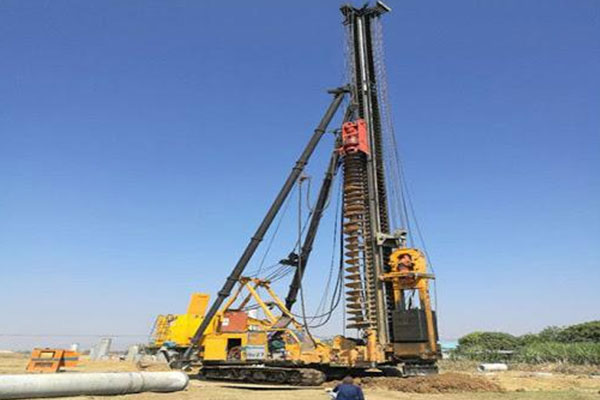In the dynamic realm of construction projects, operational excellence hinges on effective communication among project stakeholders. Seamless information exchange not only accelerates decision-making but also ensures that construction projects progress smoothly. In this comprehensive guide, we will explore strategies for streamlining construction project communication, addressing pain points relevant to construction project managers, and subtly touching upon modern tools like construction RFIs that contribute to operational excellence.
Table of Contents
The Role of Construction RFIs in Project Communication
Amidst these communication strategies, the subtle integration of construction RFIs becomes a valuable asset. Construction RFIs (Requests for Information) serve as formal channels for seeking clarification or additional information on project details. When seamlessly incorporated into project communication platforms, RFIs contribute to operational excellence by streamlining the process of resolving uncertainties. By facilitating clear and prompt responses to information requests, construction RFIs become catalysts for maintaining project momentum and mitigating potential delays.
1. Centralized Communication Platforms
A critical aspect of operational excellence in construction projects is the adoption of centralized communication platforms. These platforms serve as hubs for project-related communication, consolidating messages, updates, and documentation in one accessible location. By centralizing communication, project managers can reduce the risk of information silos, ensuring that all stakeholders have real-time access to crucial project data. This approach minimizes delays, enhances collaboration, and contributes to the overall efficiency of construction operations.
2. Real-Time Collaboration Tools
The construction landscape often involves dispersed teams, including on-site and off-site personnel. Real-time collaboration tools bridge the communication gap, enabling teams to work seamlessly irrespective of geographical locations. Features such as instant messaging, document sharing, and collaborative editing foster a culture of immediate and efficient communication. For project managers aiming for operational excellence, the integration of real-time collaboration tools is essential in promoting swift decision-making and proactive problem-solving.
3. Mobile Communication Solutions
In the fast-paced environment of construction projects, mobility is key. Mobile communication solutions empower on-site personnel to stay connected and access critical project information on the go. Whether it’s through mobile apps, text messaging, or push notifications, providing a mobile communication infrastructure ensures that crucial updates and decisions are communicated promptly. This approach addresses the pain point of on-site communication challenges and contributes to the agility required for operational excellence.
4. Document Management Systems
Construction projects generate vast amounts of documentation, ranging from blueprints and specifications to contracts and permits. Efficient document management systems organize this information, making it easily accessible to relevant stakeholders. Cloud-based systems ensure that documents are not only centralized but also secure and up-to-date. Streamlining document management reduces the risk of errors, improves version control, and supports the overall communication flow critical for operational excellence.
5. Automated Reporting and Notifications
Timely reporting is crucial for project managers to make informed decisions. Automated reporting systems generate regular updates and notifications based on predefined triggers, ensuring that stakeholders receive critical information without delays. By automating routine reporting processes, project managers can focus on strategic decision-making, improving overall project efficiency and contributing to the achievement of operational excellence.
6. Integrated Project Management Software
Integrated project management software consolidates various aspects of project management, including scheduling, budgeting, and communication. Such comprehensive tools offer a centralized dashboard where project managers can monitor progress, identify potential issues, and communicate with stakeholders seamlessly. The integration of project management software provides a holistic view of the project, fostering transparency and supporting the decision-making process essential for operational excellence.
7. Proactive Issue Resolution Protocols
Construction projects inevitably encounter unforeseen challenges. Establishing proactive issue resolution protocols ensures that when issues arise, they are addressed swiftly and effectively. These protocols can include escalation procedures, clear lines of communication for issue reporting, and collaborative problem-solving approaches. By fostering a culture of proactive issue resolution, project managers contribute to operational excellence by minimizing the impact of challenges on project timelines.
8. Continuous Feedback Loops
Operational excellence in construction projects is an evolving process that requires continuous improvement. Establishing continuous feedback loops encourages stakeholders to share insights, suggestions, and lessons learned. Regular feedback sessions contribute to refining communication strategies, addressing pain points, and enhancing overall project efficiency. The integration of feedback mechanisms ensures that the project adapts to changing conditions and maintains a trajectory towards operational excellence.
9. Stakeholder Collaboration Workshops
Fostering effective collaboration among stakeholders is a cornerstone of streamlined project communication. Stakeholder collaboration workshops bring together key participants to discuss communication protocols, expectations, and potential challenges. By establishing a shared understanding of communication practices, project managers create a cohesive and collaborative environment. These workshops encourage open dialogue, leading to improved communication strategies and contributing to the overall success of the construction project.
10. Cloud-Based Communication Platforms
The adoption of cloud-based communication platforms enhances the accessibility and flexibility of project communication. Cloud solutions allow stakeholders to access information from any location, fostering a more agile and responsive project environment. This is particularly beneficial for teams working across diverse geographic locations or for remote project management. Integrating cloud-based communication platforms ensures that project information is not confined to a specific location, promoting collaboration and contributing to the efficiency required for operational excellence.
11. Transparent Change Management Processes
Construction projects often undergo changes due to evolving requirements or unforeseen circumstances. Transparent change management processes ensure that all stakeholders are informed about modifications to project plans, timelines, or specifications. Open communication about changes mitigates confusion and minimizes potential disruptions. By establishing clear change management protocols, project managers contribute to a transparent project environment, essential for maintaining operational excellence amid evolving project dynamics.
12. Integration of Virtual Reality (VR) for Visual Communication
Incorporating innovative technologies such as Virtual Reality (VR) can revolutionize visual communication in construction projects. VR allows stakeholders to experience project designs in a realistic and immersive manner, fostering better understanding and collaboration. By integrating VR into project communication, project managers enhance the clarity of information and reduce the likelihood of misunderstandings. This forward-thinking approach not only improves communication efficiency but also aligns with the evolving landscape of technology in construction project management.
In conclusion, achieving operational excellence in construction project communication involves a multifaceted approach. From centralized platforms and real-time collaboration tools to the subtle integration of construction RFIs, each strategy contributes to the seamless flow of information critical for project success. By adopting these communication practices, project managers not only address pain points but also position their projects for efficient decision-making, proactive issue resolution, and ultimately, operational excellence.



